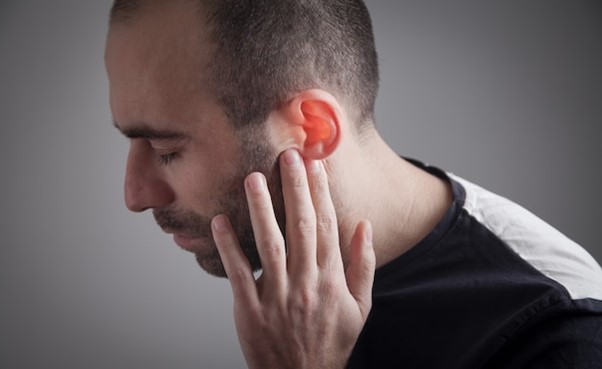Ear infections are one of the most common issues faced by both children and adults. These infections can cause discomfort, pain, and potentially lead to more serious health problems. Whether the infection affects the outer, middle, or inner ear, it’s crucial to understand how to prevent and manage these conditions to maintain good ear health.
What is an Ear Infection?
An ear infection, or otitis, occurs when a part of the ear becomes inflamed due to infection. It can affect the middle ear, outer ear, or inner ear, with severity ranging from mild irritation to more serious health complications. The infection can b triggered by bacteria, viruses, or fungi.
Types of Ear Infections
- Otitis Externa (Outer Ear Infection): Often referred to as “swimmer’s ear,” this infection occurs in the ear canal that extends from the outer ear to the eardrum. It is commonly caused by water becoming trapped in the ear, creating a damp environment that promotes bacterial or fungal growth.
- Otitis Media (Middle Ear Infection) : The most frequent type of ear infection, otitis media affects the middle ear and is often triggered by colds, flu, or upper respiratory infections. Bacteria or viruses can spread from the throat or nasal passages to the ear, causing an infection.
- Labyrinthitis (Inner Ear Infection): A rare condition, labyrinthitis affects the inner ear, which controls balance. It is typically caused by a viral infection, such as the flu or a cold, and can lead to signs like vertigo, dizziness, and hearing issues.
Common Causes of Ear Infections
While bacteria or viruses are the main culprits, several factors can make you more susceptible to ear infections:
- Upper Respiratory Infections: Cold or sinus infections can extend to the middle ear through the Eustachian tubes which are more horizontal and shorter in children, making them more prone to ear infections.
- Sinus Infections: Like respiratory infections, sinus problems can cause fluid buildup in the ear, creating an environment that aids in the growth of viruses or bacteria
- Allergies: Allergic reactions can cause inflammation in the nasal passages, blocking the Eustachian tubes, which increases the risk of ear infections.
- Water Exposure: Activities like swimming, especially in lakes, pools, or oceans, can introduce water into the ear, creating a warm, moist environment for bacterial or fungal growth.
- Ear Injuries: Physical injury to the ear, such as from using cotton swabs or other objects, can damage the ear canal or eardrum, making it easier for infections to develop.
- Weakened Immune System: Individuals with compromised immune systems, due to conditions like diabetes, HIV/AIDS, or chemotherapy, are more susceptible to ear infections.
Signs and Symptoms of Ear Infections
Ear infection symptoms can vary in severity and type. Below are some key signs to be aware of:
Outer Ear Infection (Otitis Externa):
- Itchy sensation inside the ear
- Redness inside the ear canal
- Fluid drainage (clear, yellow, or pus-like)
- Pain when touching the outer ear
- Swelling around the ear canal
- Temporary hearing loss due to blockage
Middle Ear Infection (Otitis Media):
- Ear pain or discomfort
- Fluid drainage from the ear
- A feeling of fullness or pressure in the ear
- Hearing difficulties
- Fever (more common in children)
- Irritability or fussiness in young children
- Dizziness or loss of balance
Inner Ear Infection (Labyrinthitis):
- Intense dizziness or vertigo
- Nausea and vomiting
- Tinnitus (ringing in the ear)
- Hearing loss
If you or a loved one are experiencing these symptoms, it’s important to consult with a healthcare provider to avoid complications and receive appropriate treatment.
Treatment Options for Ear Infections
Treatment for ear infections merely depends on the cause, severity, and type of infection. While many ear infections resolve with basic treatments, more serious or chronic cases may require advanced care.
- Antibiotics and Antiviral Medication: If the infection is caused by bacteria, antibiotics might be recommended to treat it. In cases of viral infections, antiviral treatments may be suggested, although many viral infections resolve on their own.
- Pain Relief: Over-the-counter medications can help alleviate the pain caused by ear infections. Warm compresses on the ear can also provide comfort.
- Ear Drops: For otitis externa, ear drops may be prescribed to reduce inflammation and target the bacteria or fungi in the ear canal.
- Surgical Procedures: In severe or recurring infections, surgical intervention may be necessary. This could include draining fluid from the middle ear or placing ear tubes (myringotomy) to help prevent further infections.
- Home Remedies: While professional care is typically needed, some home remedies like warm compresses or staying hydrated can provide comfort. However, these should not replace medical treatment.
Preventing Ear Infections
Though not all ear infections can be avoided, taking the following steps can help reduce the risk:
- Practice Good Hygiene: Wash your hands regularly, particularly during cold and flu season. Avoid inserting objects like cotton swabs into your ears, as they can irritate the ear canal and increase infection risk.
- Keep Your Ears Dry: After swimming or bathing, make sure to dry your ears thoroughly. Tilting your head can help water drain from the ear canal.
- Manage Allergies: If you suffer from allergies, keeping them under control with medication can reduce inflammation in the nasal passages and Eustachian tubes, lowering the chances of ear infections.
- Avoid Exposure to Smoke and Pollutants: Second-hand smoke and environmental pollutants can irritate the respiratory system, which increases the risk of ear infections, particularly in children.
- Vaccination: Getting vaccinated against the flu and other infections can help reduce the risk of diseases that may lead to ear problems.
At Asmara Clinic, we understand how uncomfortable and disruptive ear infections can be, and our team is committed to providing expert care. Whether you are dealing with an outer, middle, or inner ear infection, we have the experience and resources to offer the right diagnosis and treatment for patients of all ages.
If you or a loved one are suffering from an ear infection, don’t wait for the situation to worsen. Schedule an appointment at Asmara Clinic today and take the first step toward recovery.


